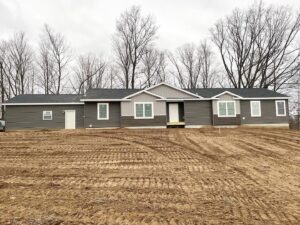Did you know that mobile homes are subject to property taxes, just like traditional houses? That’s right! Whether you’re a proud owner of a mobile home or considering purchasing one, it’s crucial to understand the basics of property taxes. These taxes can vary depending on your location and local regulations, making it essential to stay informed. In this article Do Mobile Home Owners Pay Property Tax? We will discuss all the ins and outs of property taxes for mobile homes. Let’s dive in and unravel the world of property taxes on mobile homes together!

Importance of Paying Property Taxes on Mobile Homes
Funding Essential Public Services in Your Community
Paying property taxes is a crucial responsibility that ensures the funding of essential public services in your community. These taxes play a vital role in maintaining and improving local infrastructure, supporting schools, and providing various public amenities. When you fulfill your duty as a responsible homeowner by paying property taxes on your mobile home, you contribute directly to the betterment of your community.
Revenue From Mobile Home Property Tax
The revenue generated from property taxes is utilized to fund a wide range of public services. These include but are not limited to:
Education: Property tax dollars help support local schools, ensuring that children receive quality education and have access to necessary resources for their academic development.
Emergency Services: Fire departments, police stations, and emergency medical services rely on property tax funding to operate efficiently and respond promptly to emergencies within the community.
Roads and infrastructure the maintenance, repair, and construction of roads, bridges, parks, libraries, and other vital facilities are financed through property taxes. By paying these taxes diligently, you contribute towards preserving the overall infrastructure of your neighborhood.
Community Programs: Property tax revenues often go towards supporting various community programs such as recreational activities for children and adults alike or cultural events that enhance the overall well-being of residents.
Consequences of Failure to Pay Property Taxes
Failure to pay property taxes can have serious consequences for mobile homeowners. Local governments depend heavily on these funds to provide essential services; thus, non-payment can result in penalties or even legal action. Here are some potential repercussions:
Penalties: If you neglect or delay payment of property taxes on your mobile home, you may incur additional fees or penalties imposed by the local government. These penalties can significantly increase the amount owed over time.
Liens: Non-payment can lead to a tax lien being placed against your mobile home by the government. This lien gives the government a legal claim to your property and can negatively impact your ability to sell or refinance it until the outstanding taxes are settled.
Foreclosure: In extreme cases of prolonged non-payment, local governments have the authority to foreclose on properties with unpaid taxes, including mobile homes. Losing your home due to foreclosure is an outcome that should be avoided at all costs.

Supporting Local Tax Base for Infrastructure and Schools
By paying property taxes on your mobile home, you contribute directly to the local tax base, which plays a crucial role in maintaining infrastructure and supporting schools. These funds ensure that your community remains vibrant and well-equipped for future growth.
A strong tax base allows local governments to:
Invest in infrastructure improvements such as road repairs, water systems, and public transportation.
Enhance public safety by adequately funding police departments and emergency services.
Support local businesses and attract new economic opportunities.
Provide resources for schools, including hiring qualified teachers, updating educational materials, and improving facilities.
Crucial for Responsible Homeownership
Understanding the importance of paying property taxes is fundamental to responsible homeownership. It demonstrates a commitment to contributing towards the betterment of your community while ensuring that essential services are adequately funded.
As a responsible homeowner:
Stay informed about property tax rates and payment deadlines in your area.
Budget accordingly to ensure you can meet your tax obligations without delay or financial strain.
Explaining Property Tax Obligations for Mobile Homes on Owned Land
Mobile home owners who own the land must pay both real estate and personal property taxes. Real estate tax covers the land while personal property tax applies to the structure itself.
The assessed value of a mobile home determines the amount owed in property taxes. Local assessors determine the value based on factors such as age, condition, and size.
Real Property & Personal Property: Do Mobile Home Owners Pay Property Tax
It’s important to understand the distinction between real property and personal property. Real property refers to the land on which the mobile home is situated, while personal property encompasses the structure itself. As a result, mobile home owners are subject to paying both types of taxes.
Local assessors play a crucial role in determining the assessed value of a mobile home. They consider various factors when assessing its worth, including its age, condition, and size. The assessed value serves as the basis for calculating property taxes owed by mobile homeowners.
Exemptions Mobile Home Property Tax
In some cases, exemptions may be available that can provide relief from paying certain portions of these taxes. For instance, if your mobile home is permanently affixed to a foundation or meets specific criteria set by local ordinances, you may qualify for exemptions or reductions in your tax liability.
It’s essential for mobile homeowners to stay informed about any applicable exemptions or relief programs offered by their town or municipality. By taking advantage of these opportunities, they can potentially reduce their overall tax burden.
Failure to pay property taxes on time can have serious consequences for mobile homeowners. If these taxes go unpaid or are defaulted upon, it can lead to legal issues and potential loss of ownership rights over both the land and structure.

It’s worth noting that each jurisdiction may have its own regulations regarding how they handle taxation on mobile homes. Therefore, it’s important for owners to familiarize themselves with their local laws and requirements.
Utilization of Property Taxes and Who Pays Them
Property taxes play a crucial role in funding various public services such as schools, roads, and emergency services. These taxes are contributed by both individual homeowners and businesses through their properties. Understanding how property taxes are utilized and who is responsible for paying them is essential for every property owner.
Property owners are required to pay their respective share of property taxes based on the assessed values of their properties. The tax payments made by individuals and businesses contribute to the overall tax revenue that supports community needs. The exact allocation of funds may vary depending on the jurisdiction, but the primary objective remains consistent – providing necessary services to the local community.
Local Tax Offices: Do Mobile Home Owners Pay Property Tax
Local taxation authorities, often led by a tax assessor or a local tax assessor’s office, determine the annual secured property tax bill for each property owner. This bill outlines the amount owed for current year property taxes based on the assessed value of the property. Property owners receive this bill annually, typically with detailed instructions on how to make payment.
To ensure fairness and accuracy in assessing property values, tax assessors consider various factors such as location, size, amenities, and market conditions when determining the assessed value. By evaluating these factors, they aim to assign an appropriate value to each property that reflects its worth in relation to others in the area.
Important Local Tax Offices Mobile Homes
It’s important to note that while property taxes primarily apply to real estate holdings like houses or land parcels, personal property can also be subject to taxation in some jurisdictions. Personal property includes movable assets such as vehicles or boats. In addition to traditional property taxes, some states impose consumer use tax on certain items purchased out-of-state but used within state boundaries.
When it comes time for payment, there are different methods available depending on local regulations. Property owners can usually make their tax payments directly through an online portal provided by their taxing authority or submit payments via mail or in-person at designated locations like a county treasurer’s office or a tax collector’s office.
You might also be interested in our article: The Average Electric Bill for a Mobile Home
Addressing Common Questions About Property Taxes on Mobile Homes
How Often Do I Need to Pay My Mobile Home’s Property Taxes?
The frequency of paying property taxes on a mobile home can vary depending on local regulations. In some areas, you may be required to make annual payments, while in others, the payment schedule could be semiannual. It is crucial to familiarize yourself with the specific requirements in your locality to avoid any penalties or complications.
It is essential to stay organized and keep track of deadlines. Missing a payment can result in fines or even the risk of losing your property. Therefore, understanding the frequency at which you need to pay your property taxes is vital for maintaining compliance.
To help you navigate this process effectively,
Here are Some Key Points to Consider: Do Mobile Homes Pay Property Tax
Check local regulations: Start by researching the laws and regulations governing property taxes for mobile homes in your area. Contact your local tax assessor’s office or visit their website for detailed information regarding payment frequency and deadlines.
Annual payments: In certain regions, property taxes on mobile homes are due once a year. This means that you will need to set aside funds annually specifically for this purpose. Make sure to mark the due date on your calendar and plan accordingly.
Semiannual payments: Other jurisdictions may require property owners to make two separate payments throughout the year—typically every six months. It is important to note these dates so that you can budget accordingly and ensure timely submission of your tax payments.
Penalties and consequences: Failing to pay your property taxes on time can lead to various consequences such as late fees, interest charges, or even legal actions against you. By understanding when these payments are due, you can avoid unnecessary financial burdens and potential legal issues.
Payment methods: Familiarize yourself with the available options for submitting your property tax payments. Most jurisdictions provide multiple methods, including online payments, mail-in checks, or in-person transactions. Choose the method that is most convenient for you and ensure that you have all the necessary information to complete the payment accurately.
Tax Responsibilities For Mobile Homes on Leased Land
If you own a mobile home and have it situated on leased land in a trailer park, you may be wondering about your tax liabilities. It’s important to understand your responsibilities.

Understanding tax liability
When you live in a mobile home that is located on leased land, your tax liability differs from that of traditional homeowners. In this situation, you do not pay property taxes directly as the landowner or landlord typically takes care of those expenses. Instead, you are responsible for paying rent to the trailer park owner or management company.
Trailer park rental fees
The rent you pay for leasing the land where your mobile home is placed usually includes various costs associated with living in the trailer park. These costs can vary depending on the amenities and services provided by the park management. Common components included in your rental fees might encompass maintenance of common areas, trash removal, water and sewage services, and access to recreational facilities.
Additional responsibilities
While property taxes may not be directly paid by mobile homeowners on leased land, it’s crucial to note that there are other financial obligations involved. As a resident of a trailer park, you may need to fulfill certain responsibilities beyond rent payments:
Home insurance: It is essential to protect your investment by obtaining proper insurance coverage for your mobile home.
Utilities: You will likely be responsible for paying utility bills such as electricity, gas, internet, and cable separately.
Maintenance: You are generally accountable for maintaining and repairing your mobile home unless specified otherwise in the lease agreement.
Compliance with regulations: Ensure compliance with any rules or regulations set forth by the trailer park management regarding noise levels, pet policies, parking restrictions, etc.
Benefits of leasing land: Do mobile home owners pay property tax?
Leasing land within a trailer park offers several advantages compared to traditional homeownership:
Affordability: Renting a space in a trailer park is often more economical than purchasing land and a traditional home.
Flexibility: Mobile homes on leased land provide the flexibility to relocate easily if desired, without the need to sell property or go through complex moving processes.
Community atmosphere: Trailer parks often foster a close-knit community environment, allowing residents to develop relationships with their neighbors and participate in shared activities.
Navigating Property Tax Obligations For Mobile Homes
Understanding the tax implications for mobile home owners
Mobile homes have become a popular housing option for many individuals and families. As a mobile home owner, it is important to understand your property tax obligations. While the rules may vary depending on your location and specific circumstances, here are some key points to consider:
Mobile homes in mobile home parks: If you own a mobile home in a mobile home park, you may not be directly responsible for paying property taxes. Typically, the park owner or management company is responsible for paying taxes on the land where the park is located. However, this cost is often passed on to residents through their monthly rent or other fees.
Mobile homes on private land: If you own a mobile home that is situated on private land, you will likely be responsible for paying property taxes. Just like with traditional real estate properties, these taxes are typically based on the assessed value of your mobile home and the land it occupies.
How to Differentiate Between the Modular and Mobile Homes
Differentiating between manufactured and modular homes: It’s essential to understand the distinction between manufactured and modular homes. Manufactured homes are built entirely in a factory and transported to their final location. On the other hand, modular homes are constructed in sections off-site but assembled at the intended location.
Property tax exemptions: Some states offer property tax exemptions or reductions for certain types of housing, including manufactured homes. These exemptions aim to provide financial relief to homeowners who may face higher tax burdens due to limited income or other factors.
Tax Laws Should Be Followed For Mobile Homes
Tax assessment process: The process of assessing property taxes can vary by jurisdiction. In some cases, assessors may use market values while others rely on formulas specific to manufactured housing. It’s crucial to familiarize yourself with how your local taxing authority determines assessments for mobile homes.
Impact of financing options: If you financed your mobile home purchase through a loan or mortgage, it’s essential to consider the potential impact on property taxes. Some lenders may require you to escrow funds for property tax payments as part of your monthly mortgage payment.
Insurance considerations: Alongside property taxes, mobile home owners should also consider homeowners insurance. While not directly related to property taxes, insurance is an important aspect of protecting your investment and complying with lender requirements.
Property Tax for Mobile Homes – Navigating
Navigating the world of property tax obligations for mobile homes can be complex. It’s advisable to consult local tax authorities or seek advice from professionals experienced in dealing with mobile home taxation. By understanding your responsibilities and exploring available exemptions, you can ensure compliance while effectively managing your financial obligations as a mobile home owner.
Remember, specific regulations and requirements may vary depending on your location and personal circumstances. Always refer to local laws and consult with relevant professionals for accurate and up-to-date information regarding property tax obligations for mobile homes.
Key Takeaways on Paying Property Taxes for Mobile Homes
Paying property taxes on a mobile home is an important responsibility for homeowners. Understanding the obligations and benefits of these taxes can help you navigate this process more effectively.
These Steps Are Important When Considering Property Taxes
Importance of paying property taxes on mobile homes Paying property taxes ensures that local governments have the necessary funds to provide essential services such as schools, roads, and public safety. By fulfilling your tax obligations, you contribute to the overall well-being of your community.
Explaining property tax obligations for mobile homes on owned land If you own both the mobile home and the land it sits on, you are typically responsible for paying property taxes on both. These taxes are based on the assessed value of your home and land, which helps determine how much you owe each year.
Utilization of property taxes and who pays them Property tax revenue is used to fund various public services such as education, infrastructure maintenance, emergency services, and parks. As a homeowner, it is your responsibility to pay these taxes directly or through mortgage escrow accounts if applicable.
Addressing common questions about property taxes on mobile homes
Can I deduct my mobile home’s property taxes? Yes, in many cases, homeowners can deduct their paid property taxes when filing federal income tax returns.
All These Steps Are Vitally Important
Do I need to pay property taxes if my mobile home is not permanently affixed to the ground? In most jurisdictions, even if your mobile home is not permanently affixed to the ground, you may still be required to pay property taxes.
Are there any exemptions or discounts available? Some states offer exemptions or discounts for certain individuals such as senior citizens or disabled persons. It’s important to research your local regulations to see if you qualify.
Tax responsibilities for mobile homes on leased land If you lease the land where your mobile home is located, typically it is the responsibility of the landowner or park management to pay property taxes. However, these costs may be passed on to you as part of your lease agreement.
Navigating property tax obligations for mobile homes To ensure compliance with property tax regulations, it is advisable to keep track of payment deadlines and any changes in local tax laws. Consult with local authorities or a tax professional if you have specific questions or concerns about your mobile home’s property taxes.
Do Mobile Home Owners Pay Property Tax: Conclusion
In conclusion, paying property taxes for your mobile home is crucial for supporting community services and maintaining the overall well-being of your area. By understanding your obligations and seeking information on exemptions or discounts, you can effectively manage your tax responsibilities. Stay informed, fulfill your duties, and contribute to the betterment of your community.
FAQs: Do Mobile Home Owners Pay Property Tax
Can I appeal my mobile home’s assessed value if I believe it is too high?
Yes, you can typically appeal the assessed value of your mobile home if you believe it is inaccurate or unfair. Contact your local assessor’s office to learn more about the appeals process and any required documentation.
What happens if I fail to pay my property taxes on a mobile home?
Failure to pay property taxes on a mobile home can result in penalties such as late fees, interest charges, liens against the property, or even foreclosure in extreme cases. It is essential to prioritize timely payment to avoid these consequences.
Are there any resources available for low-income individuals struggling with property tax payments?
Some states offer programs that provide financial assistance or deferrals for low-income individuals who are unable to afford their property tax payments. Research local government websites or contact relevant agencies to explore potential options.
Do I need separate insurance coverage for my mobile home and land?
Yes, it is generally recommended to have separate insurance coverage for both your mobile home and the land it sits on. Mobile homes often require specialized insurance policies due to their unique characteristics compared to traditional houses.
How often do property taxes on mobile homes typically need to be paid?
The frequency of property tax payments can vary depending on local regulations. In many areas, property taxes are due annually, but it’s important to check with your local tax authority for specific deadlines and payment schedules.
You might also be interested in our articles:
How Much Weight Can a Mobile Home Floor Hold
